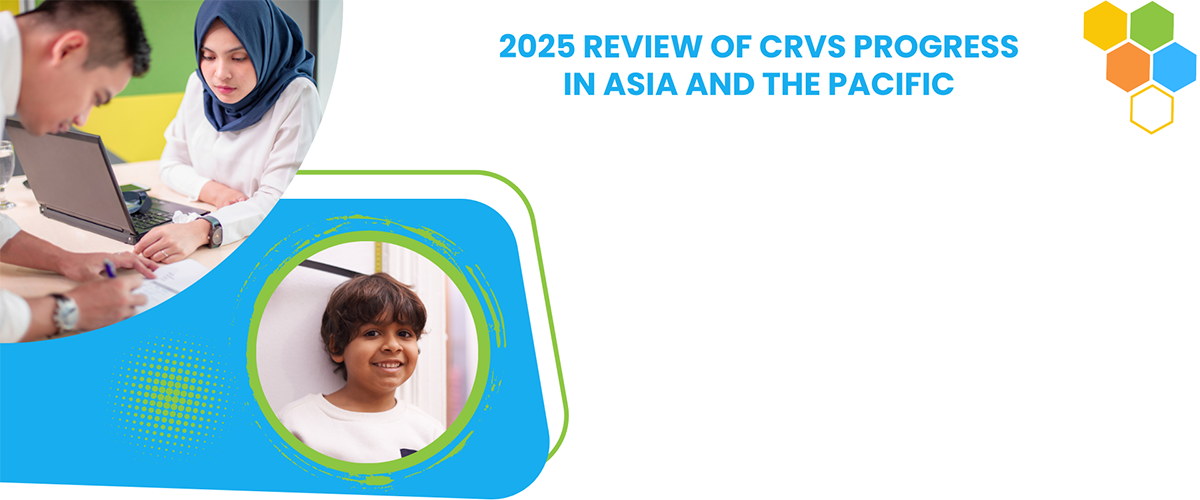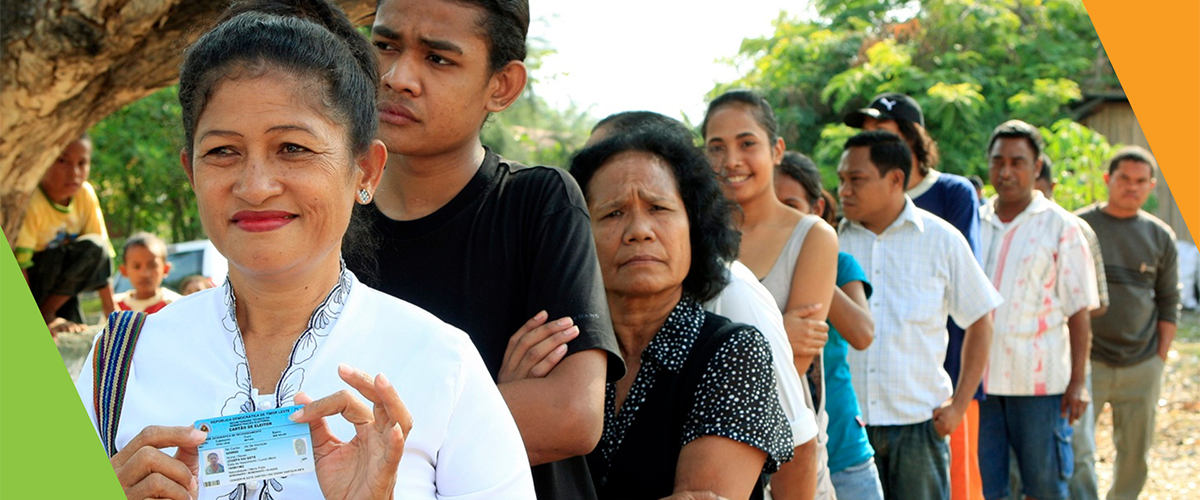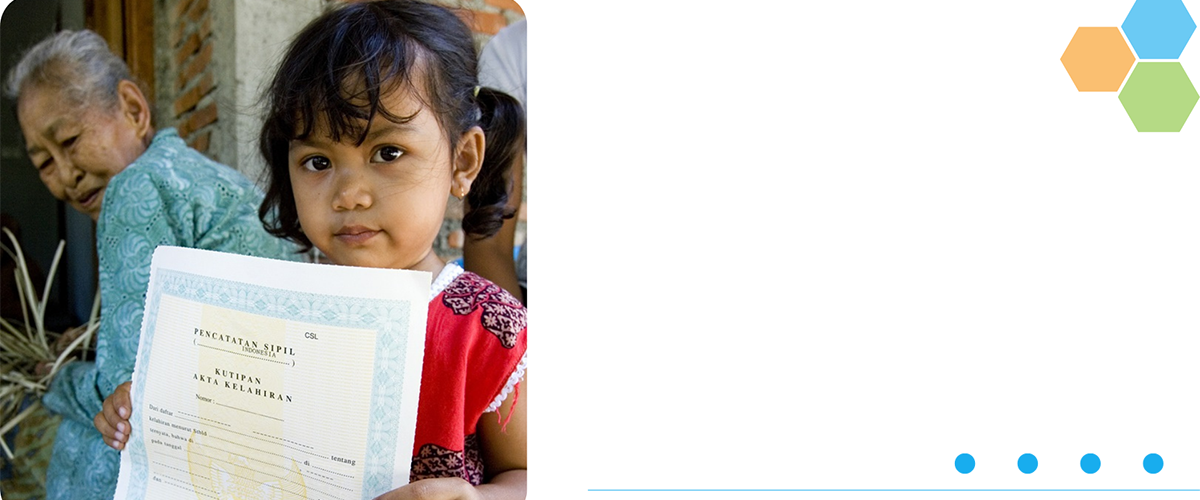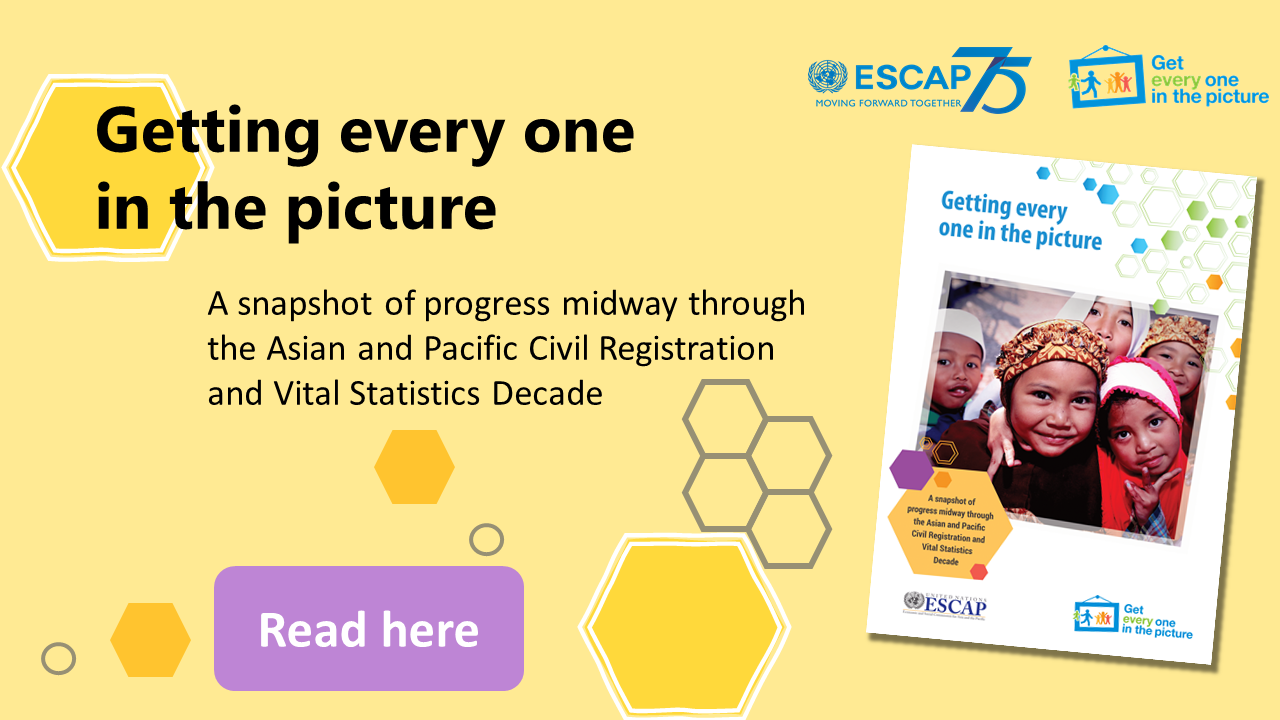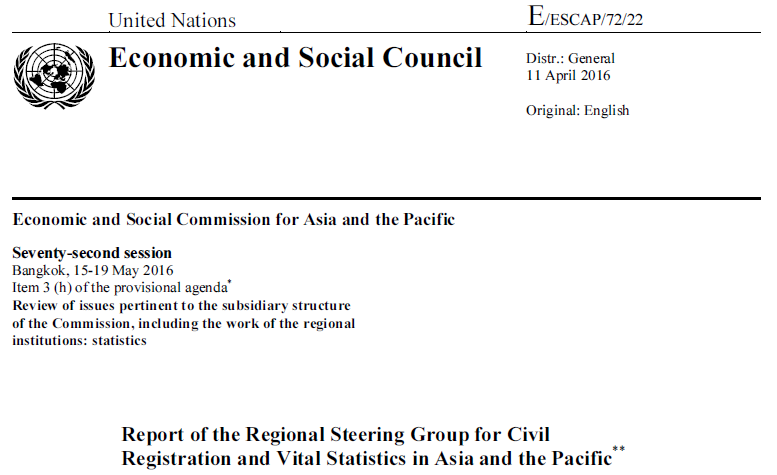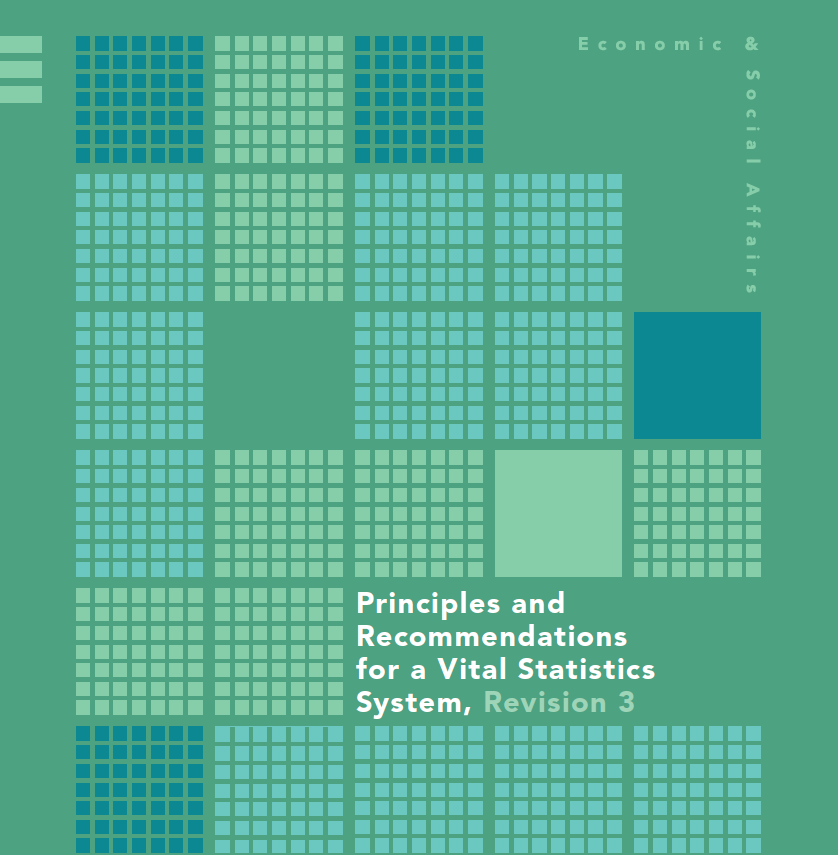First Workshop of the Project to Strengthen the National Capacity in Producing and Disseminating Vital Statistics from Civil Registration Records in Asia and the Pacific
ESCAP, with support from the Bloomberg Data for Health Initiative (D4H), is holding the first workshop of the project to improve the capacity of national CRVS systems in the production and dissemination of vital statistics.

